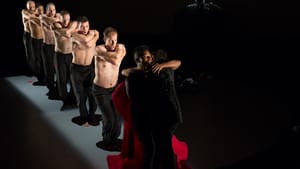A few words about dramatic language
'Antigone' and 'Metamorphoses'

Earlier this month, the directors of the Oregon Shakespeare Festival announced their intention to translate all of Shakespeare’s plays into contemporary English. The project, called Play On, will involve commissioning 36 dramatists to make less ado about the sound and fury signifying everything that Shake-scene (as dubbed by one of his contemporaries) penn'd.
We all can predict the arguments and cringe when an eminent scholar reminds us of the necessity of performances in unadulterated Elizabethan English while a theater producer guiltily defends the necessity of accessible, American speech in order to present the caviar to the general.
There have already been many versions of Shakespeare edited, adapted, and reworked, in films and onstage (including a five-minute “complete works” skit). Solid rewritings might just be the thing to catch the conscience of audiences no longer able to understand words like garboil or bourne or to know that “to die” also meant to have an orgasm back in the day. (Pledging his love forever, Benedick to Beatrice says, "I will. . .die in thy lap" — and that is much ado to do, no?)
But, I come not to praise Shag-bag (another slight used for him), nor to speak of adulterating his speech. The question I want to raise, in the context of two plays based on classic texts currently running in Philadelphia, is how updating and translating language in theatrical performances affects the staging and meaning of a play. More specifically, if language itself is not the foremost factor in a performance, what is: emotion, ideas, style, argument, theme, action, direction, setting?
The wordplay’s the thing
Shakespeare’s case is inarguable: Language is inextricable from the psychology and actions of the characters and the themes and structure of the plays. Hamlet’s punning is Hamlet’s divided consciousness, emotionality, and way of acting/not acting. Coriolanus, as a character and in terms of the theme of the play, turns on the word noble, which is used more than 60 times. Methinks the resonance and implications of noble are not common to us commoners nowadays.
That Shakespeare’s English is not ours is clear enough. Nor, of course, the fifth-century CE Greek of Antigone or the Latin from 8 CE of Ovid’s Metamorphosis. In those instances, except for those of us to whom it’s all Greek, the issue is translation and the problem is less the language than it is how to represent what language signifies, in sound and sense, in the text, both for the playwright and for the audiences for whom it was written.
Disparate solutions
The solutions of two current productions — the Arden production of Mary Zimmerman’s Metamorphoses, directed by Doug Hara, and the Attis/Wilma production of Antigone by Sophocles, as orchestrated by artistic director Theodoros Terzopoulos — could not be more radically disparate and revealing. For Hara, the aim is to employ the quite richly poetic and colloquial English of the text (adapted by Zimmerman from Ovid) to support emotive, humanistic storytelling and illustrative acting. When, for example, we hear that lovers are turned into trees, their bodies sway and arms interwine before they become still.

Terzopoulos, by contrast, uses the entire mise-en-scène with the actor’s bodies, voices, and expressions hurling language into an utterly controlled but furious, confrontational whirlwind. Except for the lucid forcefulness of Antigone’s speeches and the pained narrators’ explanations of events, the other actors vividly punctuate their utterances through distorted facial expressions and with harsh vocalizations, loud and intense rhythmic breathing, crazed laugher, wailing, chants, and desperate moans. “We are lost. Totally lost,” The male chorus laments, rolling in panic on the stage floor.
Starting in tongues
The drama itself begins with blind Tiresias, played by Greek actor Stathis Grapsas, standing on a pedestal or altar speaking rapidly in tongues. Creon, played by Antonis Miriagos, delivers many of his lines in Greek, spacing his words with short, dark breaths and the look of a man experiencing a heart attack. Nothing is missed by the audience, who can read the text projected ominously overhead — but if it is, the dour tale is presented in a funereal voice from a corner of the stage by Ed Swidey, using a translation by scholar Marianne McDonald (available online with her comments on the translation).
Antigone, drawn from myth, is a drama of ideas, argument, passion, pain, and god-damning curses. The Metamorphoses is a magical, sensual, generally immoral 15-book poem written by a Roman as a compendium of Greek mythology. Pain and passion are ever present because the gods are fucking horrible entities and, any which way you cut it, love really, really hurts. The work is also a philosophical rendering of Lucretius’s On the Nature of Things, which asserts the eternal transformations of matter are the only matter that matters.
A language not built for myth
What’s language got to do with it? I mean American English, in performance. Ours, certainly a language of poetry, narrative, and argument, is not a language of myth. For one thing, saying “god” or “the gods” or “God” is always, with our Euro-American monotheistic history, a problem. Try this: “the gods suck” versus “God sucks.” Or think about the Judeo-Christian god transforming him[sic]self into a bull, as Jove does in the Metamorphoses, to have sex with a girl, Europa, and, in another episode, into a swan to ravish a beauty, Leda.
Second, our language is demotic (from the Greek: ordinary, of the people, democratic), and while we revel in everyday poetic speech, we become cautious when the more formal discourses of law, power, and philosophy enter daily life. We relate to Antigone’s plea for justice because it is straightforward.
Losing something in the quest for clarity
But overall, as translator McDonald admits, she “opted for clarity, but something is obviously lost. . . .I use less colloquial language in the choral odes, but I try to be concrete and dramatically effective.” Fortunately, in Terzopoulos’s production, with its actual Greek, overhead translations, and near cacophony of voices, little is lost and we are deeply affected by Antigone’s predicament.
As for Zimmerman’s Metamorphoses texts (which also include passages from the German of Rainer Maria Rilke and others), the mercurial language of the myths becomes sensuous and embodied. The storytelling is seductive, but in the end, it is less about mythic power, the gods’ cruelty and irrationality, nature’s complexity, and the intricate way language is related to a worldview, and more about familiar human troubles.
When Hamlet attempts to discover Claudius’s guilt in the murder of his father, he has actors perform and famously remarks, “the play’s the thing wherein I’ll catch the conscience of the king.” Wit that he is — Shakespeare, I mean — the play is without language: a dumb show that says it all.
For Robert Zaller’s review of Antigone, click here. For Richard da Silva’s review, click here.
For Frank Burd’s review of Metamorphoses, click here. For Naomi Orwin’s review, click here.
What, When, Where
Antigone by Sophocles. Translated by Marianne McDonald; Theodoros Terzopoulos directed. Through November 8, 2015 at the Wilma Theater, Broad and Spruce Streets, Philadelphia. 215-546-7824 or wilmatheater.org.
Metamorphoses by Mary Zimmerman. Based on the myths of Ovid. Doug Hara directed. Through November 1, 2015 on the F. Otto Haas Stage at Arden Theatre Company, 40 N. 2nd Street, Philadelphia. 215-922-1122 or ardentheatre.org.
Sign up for our newsletter
All of the week's new articles, all in one place. Sign up for the free weekly BSR newsletters, and don't miss a conversation.

 AJ Sabatini
AJ Sabatini